Across the Netherlands every May, elections for the student and staff places on each university’s Council take place.
Terminology alert – Council here is the equivalent of our Academic Board or Senate, ie the self governing community of staff and students bit. Separately a university Board is more akin to what what’d consider to be University Council or Board of Governors.
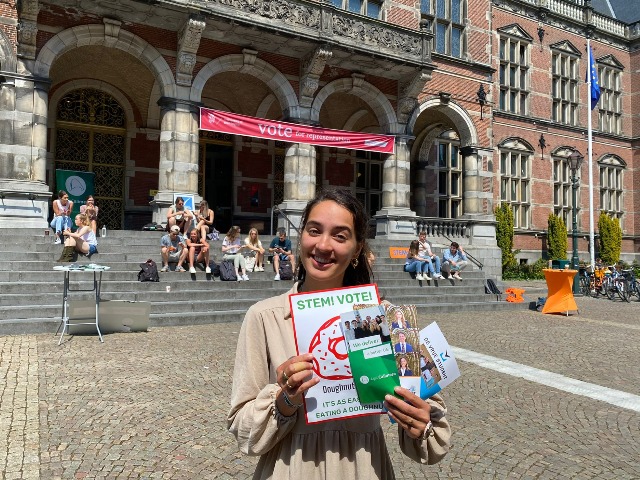
Day Three of the Wonkhe SUs study tour took us to Groningen in the north of the Netherlands, where twelve students and twelve staff each end up on the body, with the former organised into four student parties on a list system – there’s Lijst Calimero (which focuses on wellbeing, diversity and inclusion, quality education, and interdisciplinarity), Studenten Organisatie Groningen (SOG) one of the city’s two SUs that focuses on entrepreneurship and student flexibility, De Vrije Student (“we stand for a university where you are in control) and the Doughnut Party – which strives for equity and support for PhD students.
The manifestos and stand points for each of the parties represents a detailed and nuanced agenda for the improvement of education – and with some exceptions, really does put the material that emerges during UK SU elections to shame. Are there structures or systems that the UK could create to both make university democracy more participative and democratic, and improve the quality of debate about the student condition across the university community?
When a university grows from 30,000 to 40,000 students in just three years, especially if much of that growth is in international students, it places pressure on infrastructure like student housing. The situation got so bad that in 2021, one of the two students’ unions in the city (GSb) started a protest campaign, declaring that the university was growing too fast. “Three years ago, the university had fewer than 30,000 students, now we are already approaching 40,000 students,” said chairman Marinus Jongman at the time. “It is impossible to grow like this year after year. That’s why we say, full is full.”
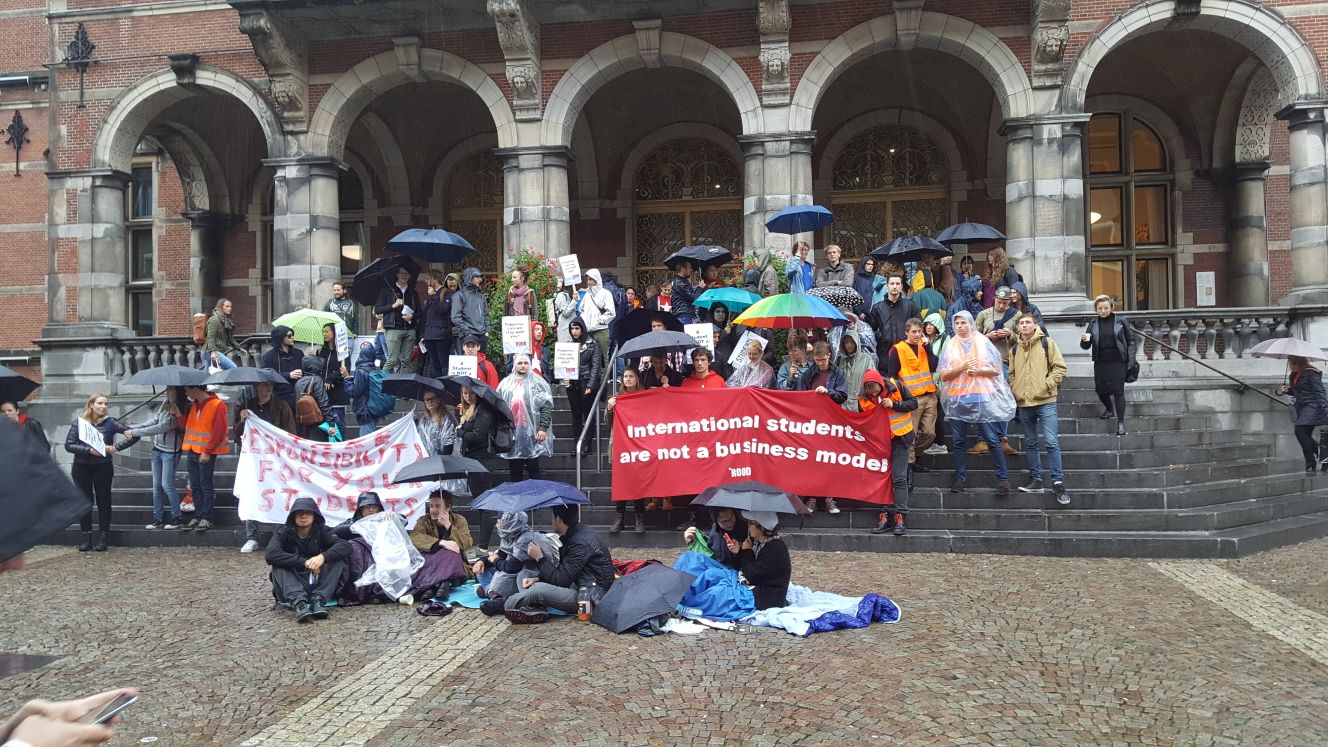
To address the housing shortage, various schemes are in place. At Home in Groningen is a website of the municipality in Groningen, on which new available rooms offered by trusted landlords are posted regularly – along with information about student tenants’ legal rights. Hospi Housing is a student-led project that matches students to a host or guest family, SSH is a company owned by two of the university that lets property to students, and Housing Anywhere is a website for exchange or international students who would like to rent a room in a Dutch student house from a Dutch student that sublets its room.
In the city – widely regarded as one of the best student cities in the world – two ancient student societies have a particular reputation. R.S.K.V. Albertus Magnus is a Roman Catholic student society, founded in 1896 and whose motto is “non scholae sed vitae” – Latin for “One does not live to learn, but learns to live”. Its private house and venue in the centre of town is regarded as a national monument. Meanwhile Vindicat atque polit is the oldest student association in the country – founded in 1815, their name means “maintain and civilize”.
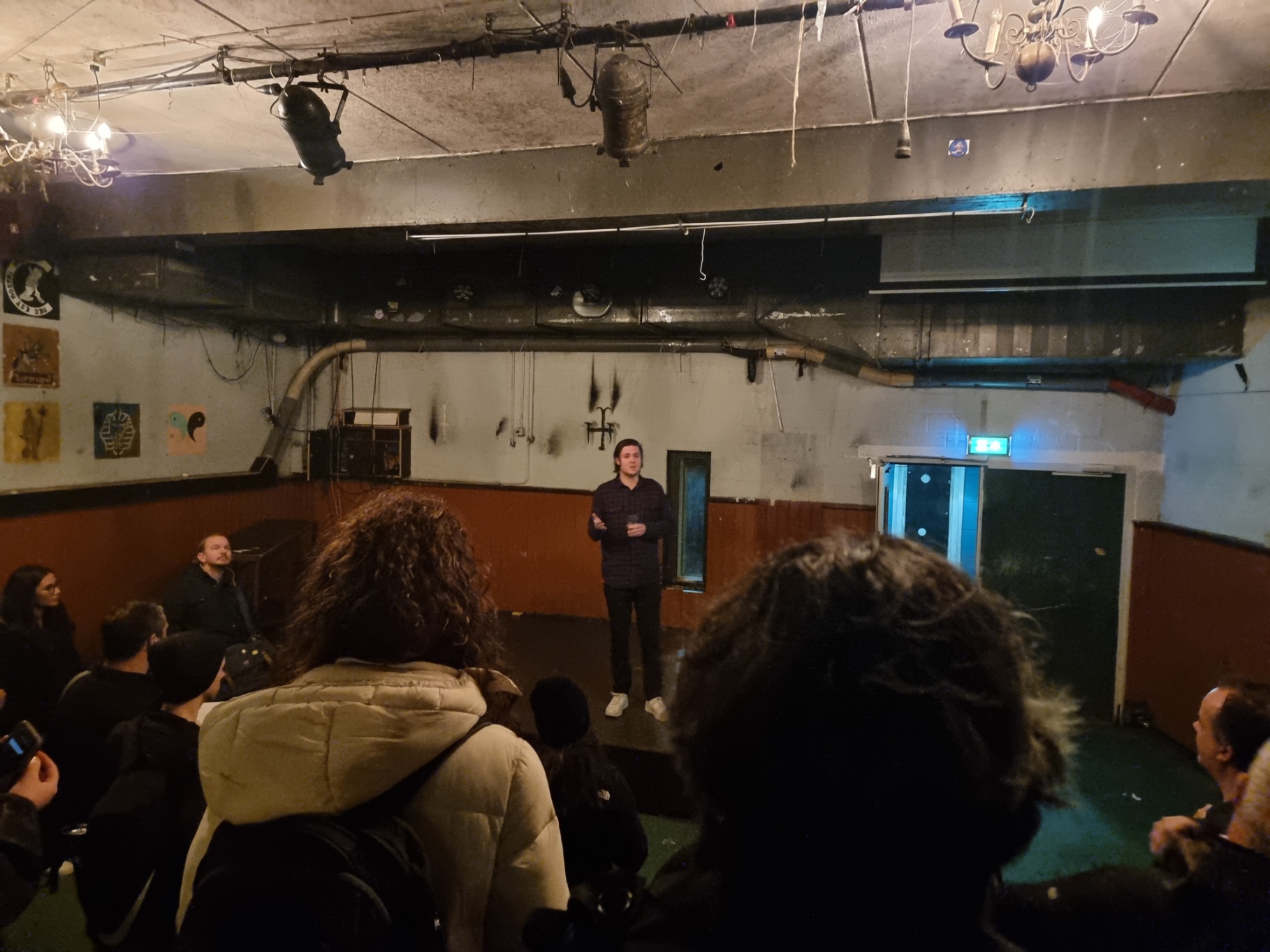
Both have come to get a poor reputation in recent years, being accused of hazing and heavy drinking – but away from the headlines they play an important role in charity fundraising, peer support, new student mentoring, participation in cultural activities and careers work. Just don’t mention the sushi incident.
At first when we came across groups like SIB-Groningen, we mistook them as traditional student societies – but on closer inspection the funding arrangements in the Netherlands support groups to have considerably more ambition and purpose than we tend to see in the UK. SIB organises an impressive array of lectures, symposia and conferences on Monday nights, dealing with international issues like politics, law, environmental issues, terrorism, economics, and human rights.
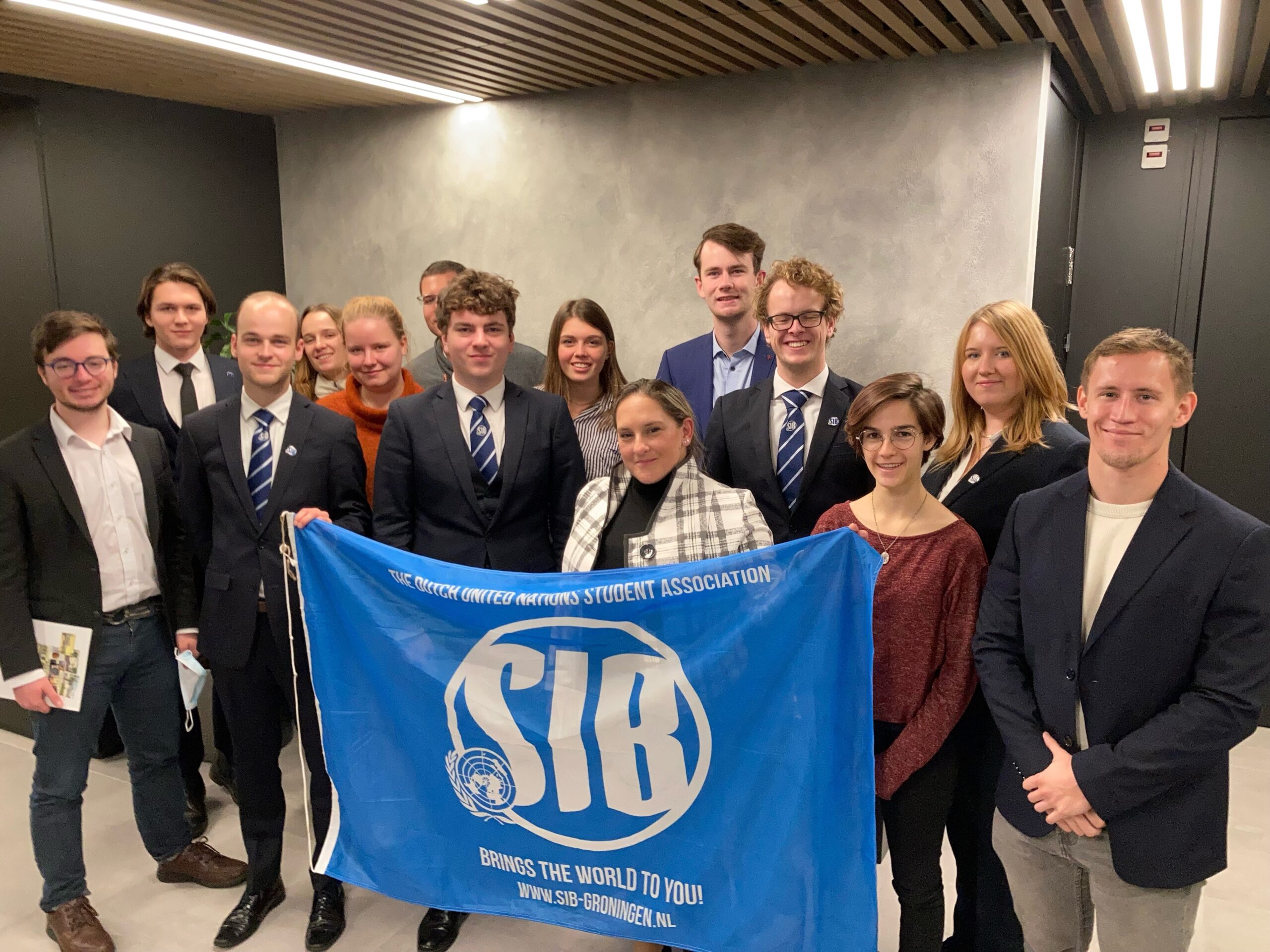
Each September it holds an Introduction Camp, there’s social groups that meet at least one night per week, and twelve sub groups taking on areas like visits and travel and study support. UK colleagues might consider the factors that are causing such impressive activity.
One factor is undoubtedly the student finance system – which students retain access to if they are taking part in running any of the hundreds of recognised student societies. Students are able effectively to pause or at least reduce the intensity of their studies while they’re doing so – and it means that where the UK might have 5 or 6 paid student leaders trying to do everything, here we see 3-400 students able to invest the time and commitment to serve others.
Further east in Enschede, at first glance the SU at Twente University looks a lot like the SUs back home – there’s a building, a board, some student groups and even a mention of student discounts. But below the surface things get very interesting indeed.
A brief glance at Kick In, for example, would suggest a fairly standard freshers week. But its scale and ambition – and the thought behind its design – is extraordinary. There’s a Campus Market where the associations recruit and a Pub Quiz with others from your programme. But there’s also a Group Photo, a huge Central Opening (like a sort of modern matriculation event with inspiring speeches from the university and SU), Welcome Games in diverse teams of students and a Welcome Dinner with more mixing.
There’s then a Campus Tour, a Bike Market, a special event for life admin (visas, housing, insurance, public transport, medical services, language courses and support services), a Think Tank event where students work together in groups to create innovative ideas for sustainability, an international Food Fair and a city scavenger hunt – all of which students take part in in teams, looked after by a trained student mentor. It happens twice a year for both main intakes, and is entirely student run and delivered – with five students taking a whole year out of their course to coordinate the 600 or so student volunteers that design and deliver it.
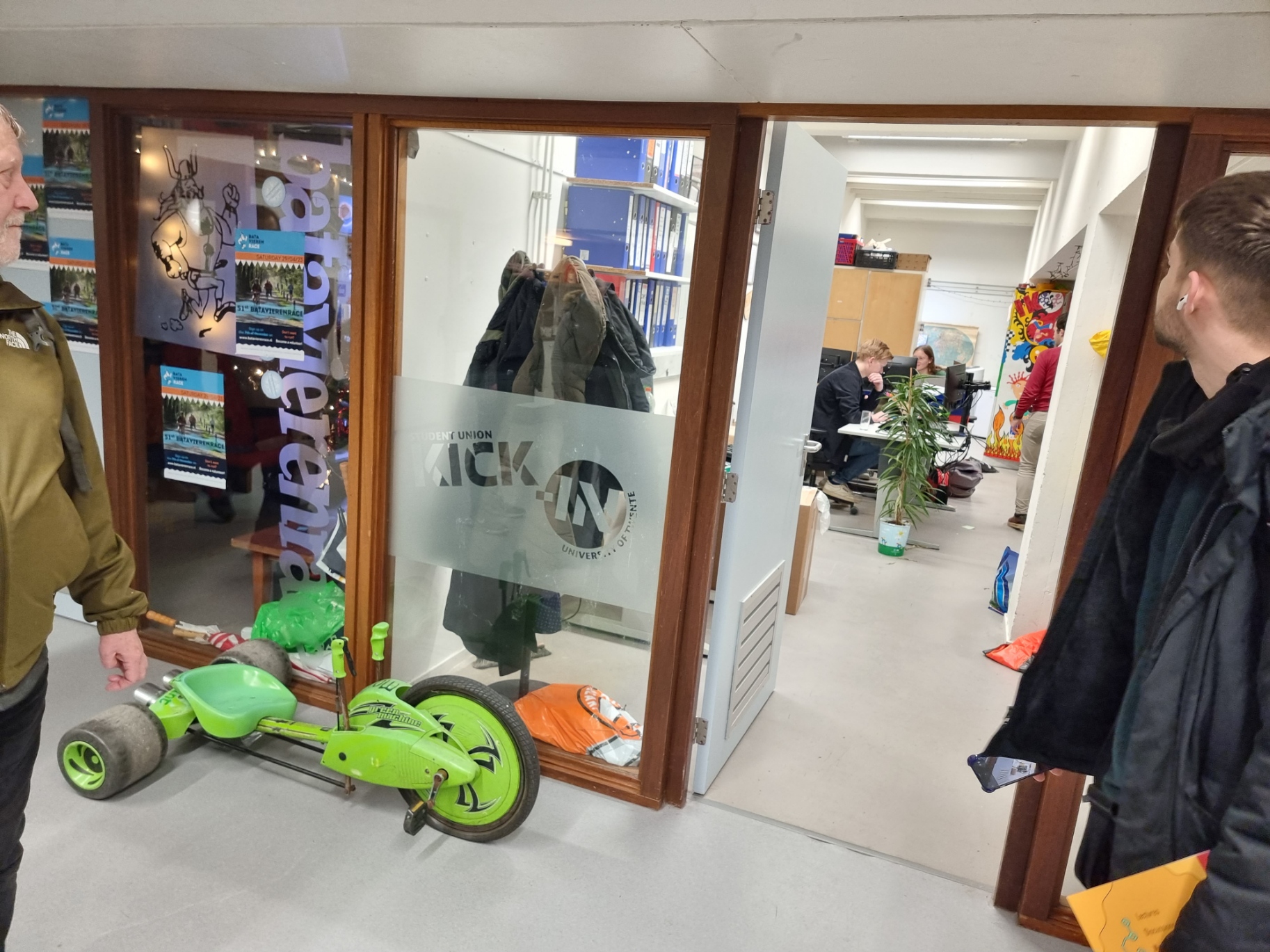
There’s plenty more innovation here. Look After Your Friend training is a student run project that helps students to understand and support other students’ mental health. The student-run Buddy Programme pairs international students with home students before the start of term. The eco-challenge invites students to think about sustainable living, even though they often only live at their student house for a couple of years. The 22 study associations each have rooms on campus in their department and organise social activity, student representation, study skills and careers activity.
And Create Tomorrow is the world’s biggest student “case competition”. About 140 student teams come together in one venue for 2 days of activities – with speakers and workshops and then a series of real life organisational challenges set by corporates that are solved by and judged by a panel, with the winning student team winning €4,000.

How does it all happen? A student funding system that supports volunteering helps, as does a tradition of associative activity in schools and a strong push towards getting involved by the university.
But it’s also about strategy and mindset – with funding and support programmes focussed on innovation and experimentation rather than liability and risk, where projects and events are as important as traditional societies, and where a university-wide vision for a rich and varied student experience extends to everyone being enabled to run something and serve others, rather than just “getting involved”.



















